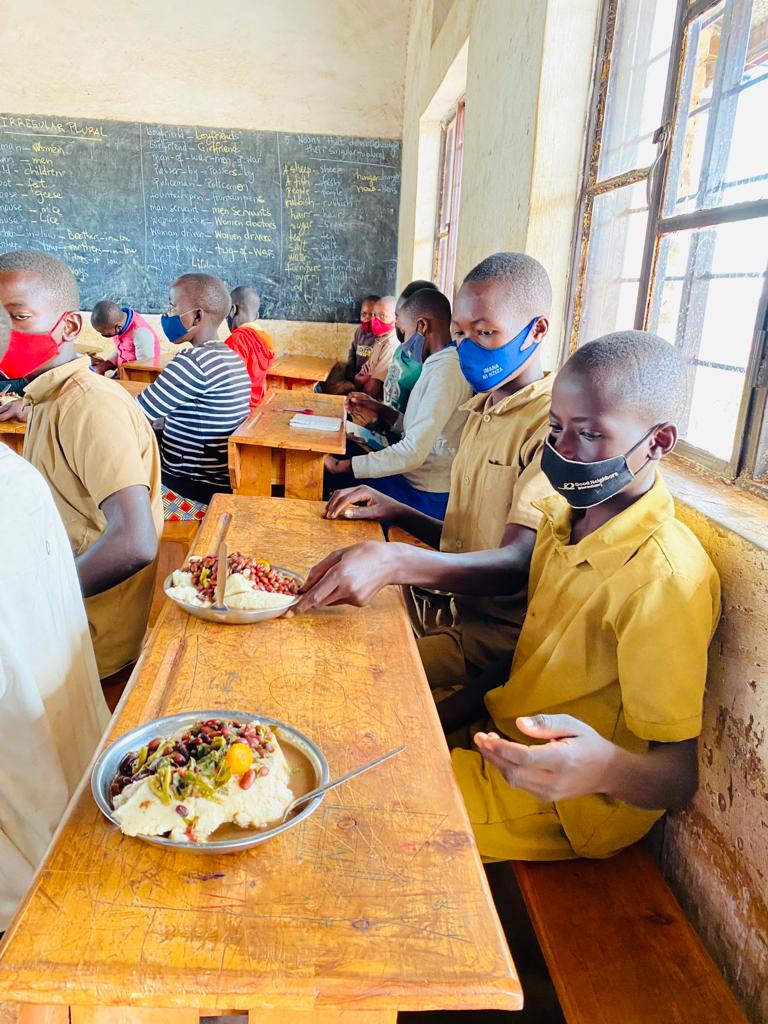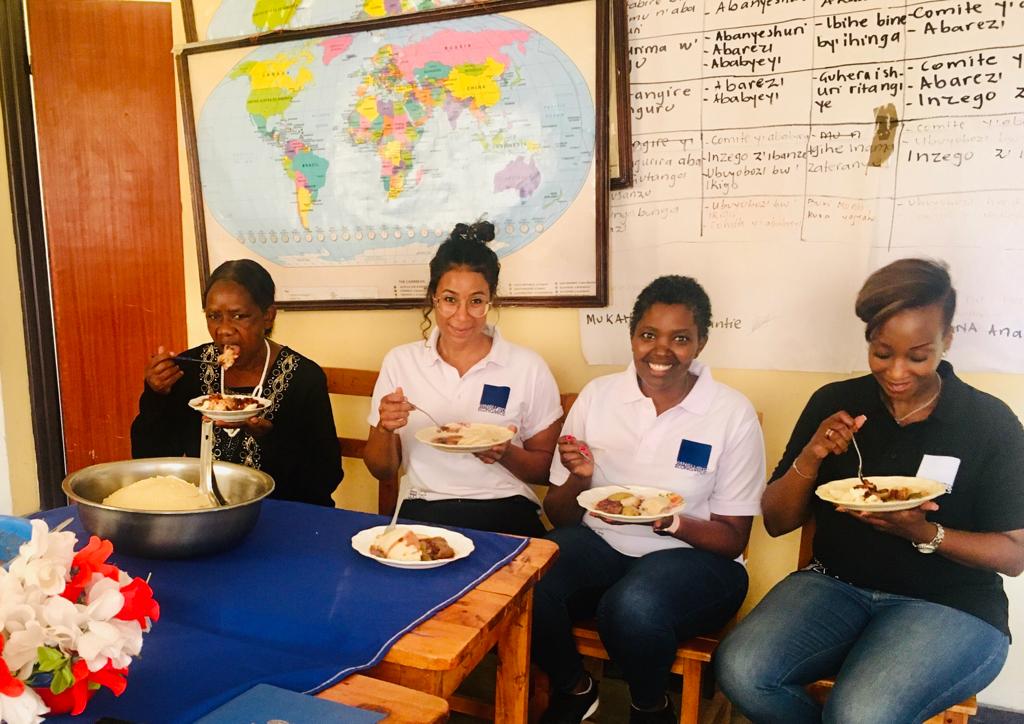Vanguard Economics is working to switch consumption of highly refined flours to nutrition-rich wholegrain fortified flour and deliver potentially massive nutritional gains for consumers in Rwanda.
Nutrition-rich wholegrain maize flour is replacing refined maize flour in school meals for 15,000 school children in the Southern Province of Rwanda under a 1-year pilot project. The pilot aims to increase nutrition in primary school meal programmes while educating children, their families and the wider school communities about the nutritional benefits of consuming fortified wholegrain flours.
 Pilot School in Nyamagabe district
Pilot School in Nyamagabe district
Nutrition Remains a Challenge in Rwanda
The Government of Rwanda (GoR) has made significant progress in addressing food security and malnutrition over the past two decades. Food security has increased from 48% in 2006 to 81% in 2018 and stunting is reduced from 38% in 2015 to 33% in 2020. However, the availability, affordability, and quality of nutritious food remain a challenge.
Several national policies have prioritised switching consumption habits in Rwanda toward more nutritional diets. The National Food and Nutrition Policy 2013-2018 is targeting a substantial reduction in the prevalence of stunting in children and aims to improve household food security, particularly in the most vulnerable households.
Additionally, the Ministry of Education (MINEDUC) recognises that many schoolchildren attend and leave school hungry with serious negative educational outcomes. Improving the nutritional content of meals in the national school feeding programs through cost-neutral interventions could have massive long-term nutrition and health gains for children.
 Pilot school in Nyarugenge district
Pilot school in Nyarugenge district
Addressing the Nutrition Challenge
Grains are a major staple in the diets of 1.3 billion Africans, who consumed nearly 273M MT of grains, cereals, and derived products in 2017. Over 90 percent of grains are consumed in a highly processed refined flour form. While refined flour can remain safe for consumption for up to 18 months after production, the highly nutritious and fiber-rich bran and germ are removed in the process. Wholegrain-derived foods are richer in fiber, vitamin B, iron, zinc, magnesium, and selenium compared with foods made predominantly with refined grains.
The Fortified Wholegrain Consumption Pilot Project, implemented by Vanguard Economics with initiative and funding from the Rockefeller Foundation, aims to initially replace Ugali made with refined flour in school meals with fortified wholegrain Ugali before scaling up to promote consumption of wholegrain flours across all consumer categories.
As a first step, Vanguard Economics collab- orated with maize processors in Rwanda to develop new long-life fortified wholegrain maize flour products for introduction into school meals. A prototype product was extensively tested by consumers and school cooks to develop the right composition for taste, smell, and consistency. Once the product was ready, the project partners mobilized the power of institutional procurement through a collaboration with The World Food Programme (WFP).
Ugali, made with fortified wholegrain flour is now included in school meals served to 15,000 children twice weekly in WFP-supported schools in Nyaruguru and Nyamagabe districts. And a systemic awareness campaign is being run to ensure children understand and appreciate the benefits of the product.
 Pilot in Nyamagabe district
Pilot in Nyamagabe district
Next Steps
Vanguard is collecting data for a ‘lessons learned’ report that will give a systematic overview and in-depth analysis of the key lessons learned during the pilot and the specific implications for a potential scale-up. Hopefully, the pilot will pave the way for a scale-up of the project in Rwanda or similar projects in the region.
Stay tuned for the next article in the series about the wholegrain consumption pilot project.
 The Vanguard Project Team in Nyamagabe district
The Vanguard Project Team in Nyamagabe district

